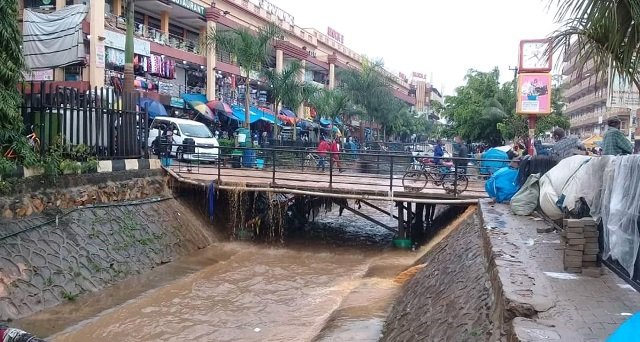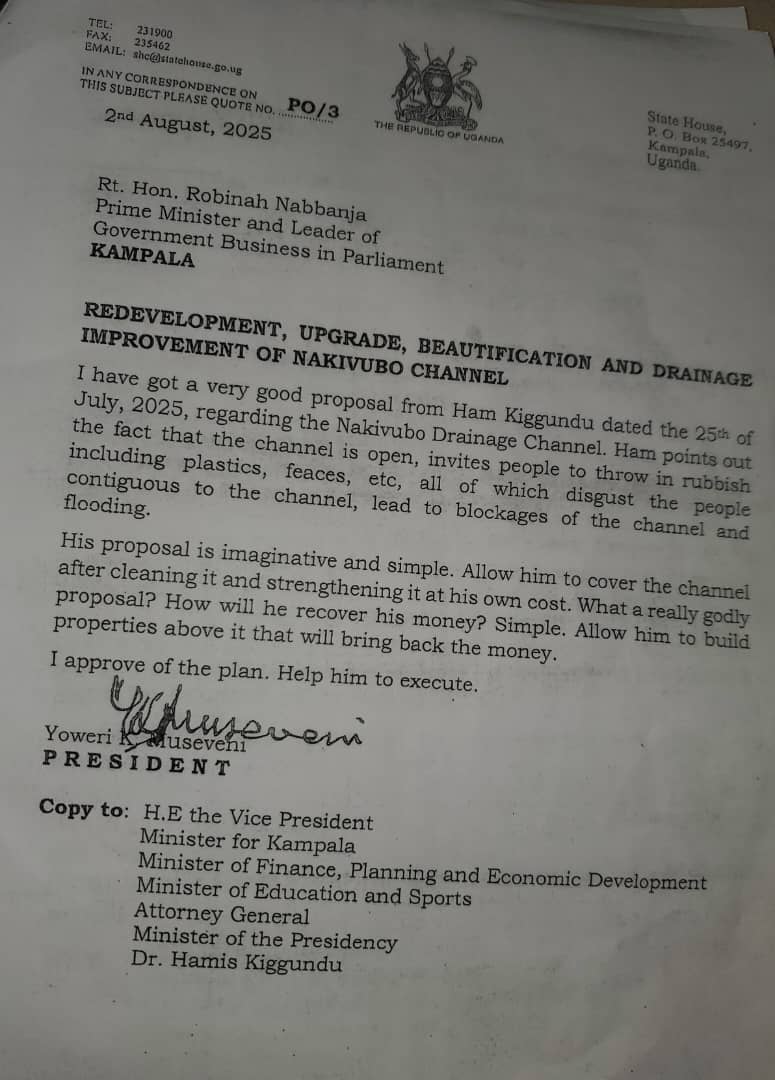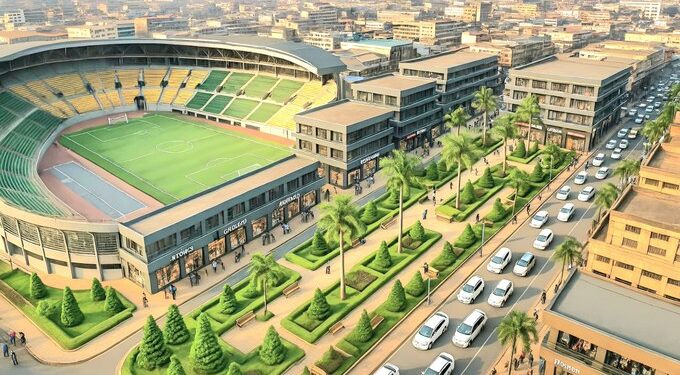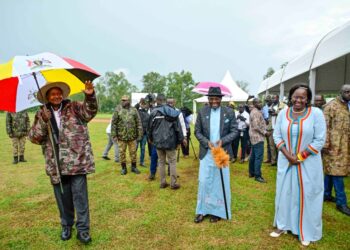KAMPALA – President Yoweri Kaguta Museveni has given a green light to city businessman Dr. Hamis Kiggundu’s plan to cover Nakivubo channel and redevelop the area, describing the initiative as both “imaginative and simple.”
In a letter dated August 2, 2025, addressed to Prime Minister Robinah Nabbanja, President Museveni endorsed a proposal presented by Kiggundu on July 25, 2025, regarding the perennial garbage and flooding crisis caused by the open drainage channel in the heart of Kampala. The president noted that the exposed channel had effectively turned into a dumping site for rubbish, creating health hazards and worsening flooding in the central business district.
Museveni praised Kiggundu’s “godly proposal” to provide a lasting solution by covering the channel while simultaneously creating usable space above it. “Ham’s idea is imaginative and simple,” the president wrote. “By covering the channel, he will solve the problem of rubbish being thrown into it and create new urban infrastructure that will enhance the image of our capital city.”


According to the president’s letter, Kiggundu’s proposal is based on a public-private partnership arrangement: the businessman will finance the covering of Nakivubo channel using modern engineering designs, and in return, he will be allowed to construct commercial infrastructure above it to recover his investment. Museveni directed that the relevant government ministries and agencies should support the implementation of the project.
The letter was copied to Vice President Jessica Alupo, Minister for Kampala Hajjati Minsa Kabanda, Minister of Finance Matia Kasaija, Minister of Education and Sports Janet Kataaha Museveni, the Attorney General Kiryowa Kiwanuka, Minister for the Presidency Milly Babalanda, and to Dr. Kiggundu himself.
Kiggundu, who has spearheaded several large-scale urban developments including the ongoing Nakivubo Stadium redevelopment and Ham Shopping Mall projects, said his latest proposal seeks to harmonize environmental management with commercial sustainability. In his July 25 letter, he highlighted that leaving the channel open had for decades encouraged indiscriminate waste disposal, leading to regular blockages, flooding, and sanitation concerns in downtown Kampala.
“By covering it, we not only eliminate the garbage menace but also create additional usable space for Kampala’s congested business community,” Kiggundu argued.
Museveni’s endorsement of the plan is expected to trigger wider debate on urban redevelopment and private sector participation in Kampala’s infrastructure. The Nakivubo channel, stretching several kilometers across the city, has long been a symbol of the capital’s unending battle with drainage and garbage management.
While the proposal has been hailed as innovative, it may also attract scrutiny from urban planners, environmentalists, and civil society groups, particularly regarding issues of land use, compensation, and the potential privatization of public infrastructure. However, Museveni’s intervention signals the government’s readiness to embrace unconventional solutions to Kampala’s chronic urban challenges.
The president emphasized that Kiggundu’s intervention should be facilitated without bureaucratic delays, urging ministries to ensure that technical, financial, and legal frameworks are properly aligned to safeguard both public interest and investor confidence.
If successfully implemented, the project could set a precedent for future urban infrastructure partnerships between government and the private sector, redefining how Kampala tackles its infrastructural bottlenecks.
For now, Ham Kiggundu has secured the highest political blessing for what could become one of the most transformative urban projects in Uganda’s capital city.
Do you have a story in your community or an opinion to share with us: Email us at editorial@watchdoguganda.com














